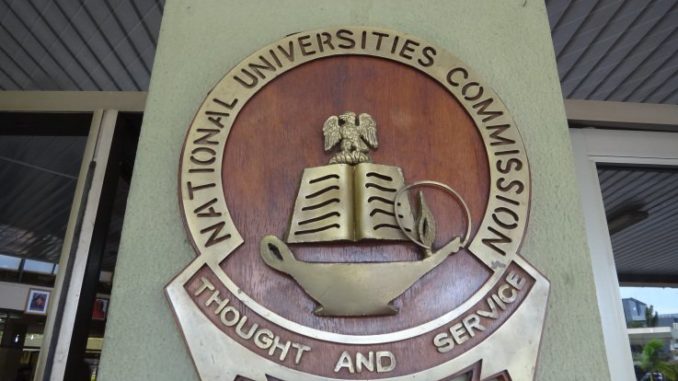
A former Executive Secretary of Nigeria Universities Commissions (NUC), Professor Peter Okebukola recently decried acute shortage of teaching staff in Nigerian universities; noting that the annual growth rate of Nigerian universities at four per cent has made the annual teacher production rate of two per cent inadequate. The University don who was at a time the Vice Chancellor of the Lagos State University further hinted that “Nigerian University system currently operates with 30 per cent shortfall of teaching staff. More instructive is that beyond the serious issues of teaching staff inadequacy, Okebukola identified acute shortage of funds in both public and private universities as major hindrance to recruitment and retention of the required numbers of teaching staff.
Okebukola who bemoaned the state of Nigerian universities barely a week to the commencement of ongoing strike by lecturers in public universities had, months back, at the Convocation Lecture titled “Can the Bones Rise Again? A Peep Into the Revitalisation of the Nigerian university Reform” at the Ekiti State University, Ado Ekiti attributed poor funding for the poor rating being accorded Nigerian universities globally; noting that the university system would continue to encounter manpower challenges until the menace of poor funding was addressed. While re-echoing the challenge of funding at the convocation lecture titled “Private Universities and the Revitalisation of the Nigerian University System” at the Ajayi Crowther University in Oyo town recently, Okebukola noted that it has become more sustainable for private universities to hire lecturers on part-time basis as a result of inadequacy of funds. According to Okebukola, lecturers on full time employment in private universities are always eager to switch to public universities while, on the other hand, highly skilled lecturers in public universities are weary of full-time employment in private universities for fears of job insecurity.
It should therefore be worrisome that academic activities have, once again, been brought to complete halt in Nigerian Universities on account of protracted disputes over funding. Even as lecturers in public universities are complying with the directives by the Academic Staff Union of Universities (ASUU) for the withdrawal of services, the Minister of Education was reported to have said the government cannot meet the demands of the striking lecturers. If government maintains it’s stance, millions of youths may be rendered idle at a most inauspicious time when the country faces the challenge of another general elections. It is regrettable that Nigerian university system has acquired the reputation as the most unstable in the world owing to frequent disruptions of academic calendar. Failures by successive administrations to implement agreements reached with both the academic and non-academic unions have led to repeated strikes; sometimes running into months. While news about Nigerian universities in recent years has become synonymous with incessant strikes by university workers, it is indeed disappointing that genuine concerns of stakeholders in the university system; particularly ASUU over inadequate funding appears not to be receiving the desired attention from government.
It leaves much to be desired that the last two decades have witnessed renewed agitations over the decaying infrastructures as well as falling administrative standards in public universities. Unfortunately, the decay has festered rather than abate while successive administrations continue to indulge in ding-dong of prevarications over agreements reached with stakeholders over the compelling issues of funding.
The ongoing strike is therefore rather unfortunate and ought to have been averted considering that previous strikes by labour unions have not significantly prevented the situation from further degeneration. While ASUU as a union deserves commendation for its doggedness in keeping faith with agitations for better funding of universities for over three decades, we, however, believe that incessant strikes could no longer be the way out. Unfortunately, government has also failed in its responsibility to appreciate the need to avoid making strike the only option seemingly conceivable in circumstances that mutual agreements could no longer be considered binding on government.
Nevertheless, there has to be a way out of the impasse as the country could ill afford a shambolic university system. We therefore demand that government should immediately engage the leadership of ASUU in deliberation on how to restore normalcy in the interim. Meanwhile, we urge ASUU and all other stakeholders in the university system to be amenable to fresh proposals towards addressing the challenge of funding in the universities holistically and dispassionately.
END

Be the first to comment